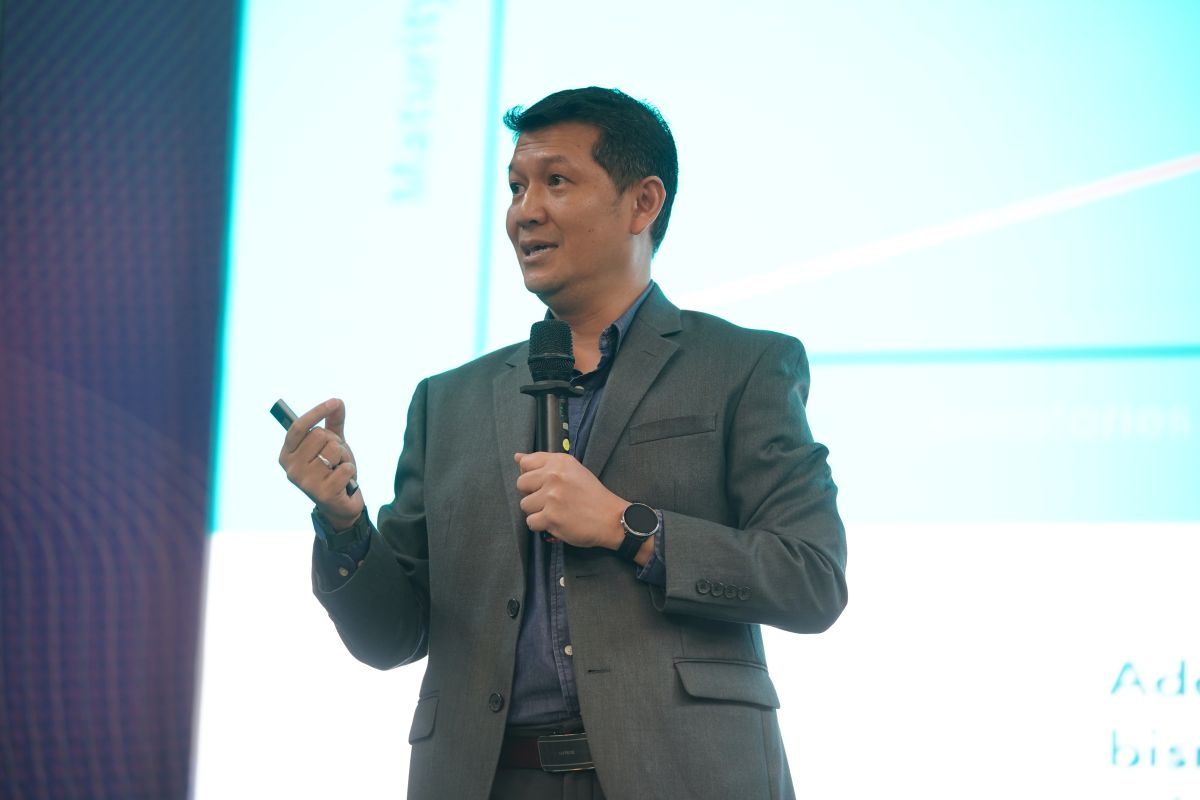In Depth with Pro-Environment Attitude and Media Support
By Adi Permana
Editor Adi Permana

BANDUNG, itb.ac.id – Media have a very important role in academic’s world as a means of delivering correct, precise, and accurate information to the general public. Moreover, a lot of that information may have a direct corelation to our everyday life, such as the procedure to handle waste and driving behaviour.
On the evening of Thursday (15/2/2021), Air and Waste Management Research Group (KK PUL) from the Faculty of Civil and Environmental Engineering Institut Teknologi Bandung (FTSL ITB) held a conference titled “Media Role in Supporting the Promotion of Pro-Environment Attitude” as a series of “Webinar Series KK PUL in Effort to Increase Pentahelix Relation (ABCGM)” event. The convention presented three keynote speakers, Dr. Benno Rahardyan, S.T., M.T., Dr. Adyati Pradini Yudison S.T., M.T., and Donny Iqbal, S.Sos. The convention was led by Emenda Sembiring S.T., M.T., M.Eng.Sc., Ph.D. as the moderator.

Attitude in Waste Management
Dr. Benno Rahardyan, a lecturer from ITB Environmental Engineering, states that there are 3 main requirements in achieving sustainable solid waste management. It needs to be environmentally friendly, economically feasible and welcomed by the general population. According to him, the technical side is no longer the main obstacle in the waste management sector, instead, the various social problem has been the main challenge.
“Public attitude always intertwines with how wastes are managed, so the ideal solution is to integrate them in our effort in handling waste,” he said. The only form of public participation that is popular enough is their willingness to fund the waste management system. “Public willingness to pay can still be increased,” said Berno.
As the closing remark of the first session, Dr. Benno delivers four points of conclusion. The first point is the importance of social aspect evaluation in the waste management system. The second point is the need for more social study toward public behaviour concerning waste management. The third point is the importance of an on-point social approach to overcome the social obstacles. The last point is general need to develop social network in strengthening public participation.
The Implication of Driving Behaviour on Vehicle Emission
Adyati Pradini continues the talk with an explanation of her research on motorized vehicle emission. There are two types of emission, complete combustion and incomplete combustion. If the completion rate of combustion is worsened, the emission emitted will also have a worse effect.

She explains that vehicle emissions can have a dangerous effect on both our health and the environment. The environmental effect is that the produced green-house gases contribute to global warming and can cause Photochemical SMOG. The health effect is that the chemical that is emitted can cause eye irritation and upper respiratory tract infection because of its carcinogenic nature. The in the number of motorized vehicles over the year has caused this problem to be more severe. “Society needs to act in reducing the emission emitted by motorized vehicle by applying correct treatment to their vehicle and improve their driving behaviour.
Some of the examples of the applied treatment of a vehicle that can reduce its emission are routine maintenance, not exceeding its maximum capacity, and using correct fuel requirements. One of the examples of good driving behaviour is to drive at maximum allowed speed on an empty road.
Introducing Slow Journalism Concept
Question like what is slow journalism might arrive. An environmental journalist interviewee in Mongabay.com, Donny Iqbal, is here to introduce us to that concept. He chooses the topic of “To Understand the Meaning behind Slow Journalism”.
Donny opens his talk by quoting National Geographic Magazine editor in chief, Susan Goldberg, who is having a concern about degrading quality of modern-day journalism caused by today’s fast flow of information. That concern later starts the trend of slow journalism, a system which is wished to be the future of journalism.

Through the slow journalism, lied a hope that the journalist, media, or news will revert to their ethical code of serving the general public with unaligned and unbiased information. Profit-oriented journalism is not suited of the role as a pioneer of revolution toward repairing our nation dignity. It will just be another thorn in the flesh, a pollution in the middle of culture, wisdom, and technological disruption.
It is an irony if we look back and realize that the real master of a journalist is the public itself. Misleading or biased information can have a dangerous effect on the general public. A journalist whose doing his work needs to hold the principle of neutrality and independent. “Those two points is a two different thing,” said Donny.
He emphasizes the difference between neutral and independent. A neutral means that the journalist is not aligned, whilst independent means that he is free from any stake but the truth itself. By holding those two principles then journalism can finally be the loftiest bridge between academicians and the general public in achieving one of our national goals, that is to advance the intellectual life of the people.
Reporter: Zahra Annisa Fitri (Perencanaan Wilayah dan Kota, 2019)
Translator: Favian Aldilla (Teknik Sipil, 2019)



.jpg)

.jpg)


.jpeg)